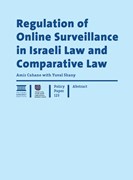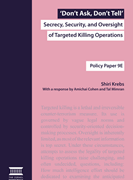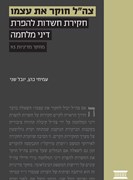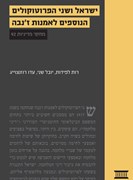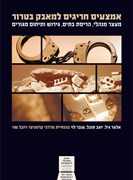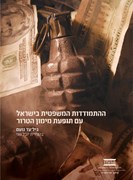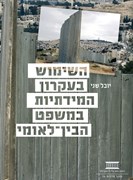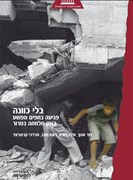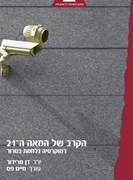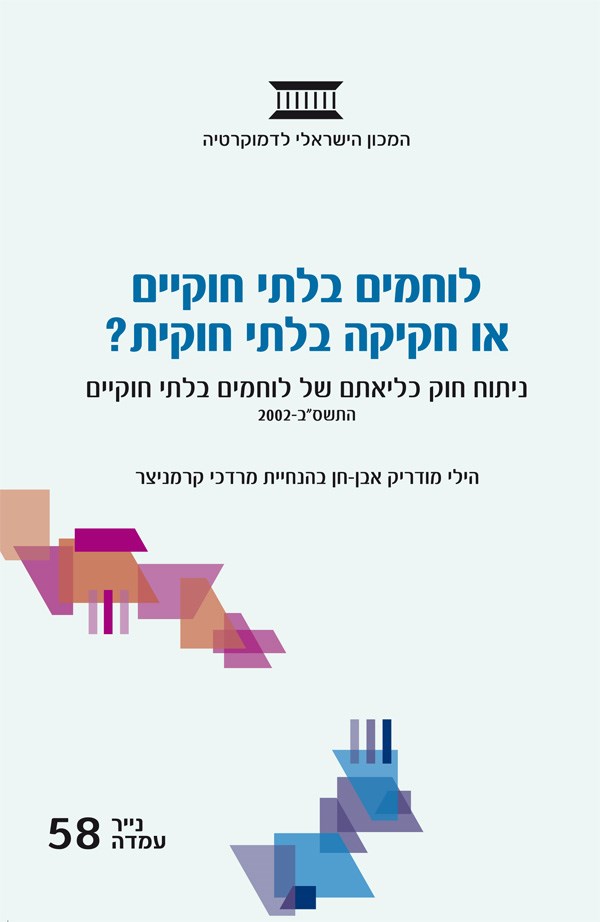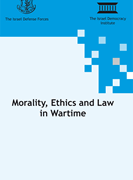

Publications Regarding International Law
Articles

The Rules Have Changed: The German Arms Embargo and the War in Gaza
Written By: Prof. Yuval Shany, Prof. Amichai Cohen
Germany's recent decision to impose an embargo on the export of military equipment to Israel is a key example of the changing landscape of international law applicable to armed conflict over the last two decades.

The ICC Palestine Case in the Aftermath of the Arrest Warrants Decisions – Part Two
Written By: Prof. Yuval Shany, Prof. Amichai Cohen
In the second installment of their two-part analysis of the ICC's decision to issue arrest warrants against Israeli leaders, Prof. Yuval Shany and Prof. Amichai Cohen examine the arguments behind the arrest warrants and steps Israel can take to prevent them from being realized.

JFNA & IDI Webinar on The Implications of the ICC Warrants
Written By: Dr. Eran Shamir-Borer,
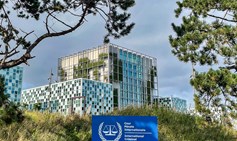
ICC Arrest Warrants Against Netanyahu and Gallant: Consequences and Potential Solutions
Written By: Prof. Amichai Cohen
Israel will likely not succeed in forcing the Court to annul its orders, and attempting to do so will make it even harder for its allies to support it. Instead, it can conduct an independent and effective investigation, avoiding problematic statements, and adhere to the laws of armed conflict.

The ICC Palestine Case in the Aftermath of the Arrest Warrants Decisions – Part One
Written By: Prof. Yuval Shany, Prof. Amichai Cohen
On November 21, 2024, the Pre-Trial Chamber of the International Criminal Court (ICC) issued four decisions. These deal with various legal matters arising out of the Prosecutor’s May 20 request to issue arrest warrants as part of his ongoing investigation of the Situation in Palestine, in the context of the War in Gaza.

Security Considerations, the Duty to End Belligerent Occupations and the ICJ Advisory
Written By: Prof. Amichai Cohen, Prof. Yuval Shany
Prof. Cohen and Prof. Shany discuss three possible rationales for the ICJ's rejection of Israel’s security concerns and offer a few final observations on the appropriate balance that should hold between security considerations and continued presence in occupied territories.

“Well, it Depends”: The Explosive Pagers Attack Revisited
Written By: Prof. Yuval Shany, Prof. Amichai Cohen
IDI experts Prof. Amichai Cohen and Prof. Yuval Shany analyze the legality of the September explosions targeting Hezbollah pagers and walkie-talkies through three legal frameworks: the right to use force, principles of distinction and proportionality, and the legality of employing these devices under laws regulating choice of weapons.

The Sde Teiman HCJ Judgment: Too Little, Too Late?
Written By: Prof. Amichai Cohen, Prof. Yuval Shany
A recent judgment of the Israeli Supreme Court held that conditions in a notorious detention center must comply with Israeli law.

Advisory Opinion of the International Court of Justice on the Legal Consequences of Israel's Policies and Practices in the "Occupied Palestinian Territory"
Written By: Dr. Eran Shamir-Borer, Adv. Mirit Lavi
An in-depth analysis of the advisory opinion of the ICJ on the legal consequences of Israel's policies and practices in the 'occupied Palestinian territory.'

Investigating Allegations of Detainee Abuse is Israel’s Moral and Legal Duty - And a Diplomatic Necessity
Written By: Prof. Amichai Cohen, Dr. Eran Shamir-Borer
Investigating allegations of abuse at the Sde Teiman detention facility is Israel's moral and legal duty as a rule-based democracy and protects the country on the international legal and diplomatic front.

Another Brick in the Wall? The ICJ Advisory Opinion on Israeli Policies and Practices in the Occupied Palestinian Territory
Written By: Prof. Amichai Cohen, Prof. Yuval Shany
The ICJ Advisory Opinion on Israel's policies in the territories of the West Bank (Judea and Samaria) are illegal but was more divided on other salient factual and legal findings.

The United Nations’ Warning about Undermining the Independence of the Judiciary
Written By: Dr. Guy Lurie
The UN report paints a disturbing picture in which countries experience “autocratization”—an erosion of the foundations of democracy—through actions that undermine the judicial system’s independence. In Israel, the current government is aiming to undermine judicial independence in order to consolidate its power and authority at the expense of individual rights and the rule of law.

In Search of Complementarity: Israel’s Possible Responses to ICC Arrest Warrants
Written By: Prof. Yuval Shany, Prof. Amichai Cohen
If properly structured, both a commission of inquiry and a preliminary examination by the Israeli police could arguably meet existing complementarity standards.

The International Court of Justice (ICJ) Order on the IDF Operation in Rafah: Commentary and Implications
Written By: Dr. Eran Shamir-Borer
The issuance of additional interim orders in the genocide proceedings underway at the ICJ limits Israel’s operational wiggle room in Rafah, but leaves it with some flexibility in the interpretation and implementation of the new orders.

What Constitutes Professional Judicial Conduct? Barak’s Lesson to the ICJ Judges
Written By: Prof. Suzie Navot
The International Court of Justice in The Hague (ICJ) issued new temporary orders against Israel this week. Justice Barak’s dissenting opinion would seem to offer an important lesson for the future. Professional, focused, and well-founded legal criticism—as opposed to the very different means that are currently being widely discussed and pursued—is likely the best way to deal with the ICJ.

The Prosecutor’s Uphill Legal Battle?: The Netanyahu and Gallant ICC Arrest Warrant Requests
Written By: Prof. Yuval Shany, Prof. Amichai Cohen
In this article, we wish to identify and discuss here some potential problems we identify in the part of the request pertaining to Netanyahu and Gallant, at least as it was presented in the Prosecutor’s short announcement and by the expert report supporting it.

ICC Arrest Warrants Would Harm Israel at Home and on the International Stage
Written By: Prof. Amichai Cohen
From damage to scientific collaboration to cancellation of arms deals, arrest warrants for senior Israeli officials from the International Criminal Court in the Hague would pose a serious challenge to Israel
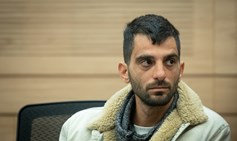
The Sanctions Against Israelis
Written By: Prof. Amichai Cohen
The US, the UK, France and other states have announced the imposition of economic sanctions on Israeli residents who are believed to be complicit in 'settler violence.' This document aims to outline the framework of international economic sanctions and contextualize the sanctions imposed on Israelis.
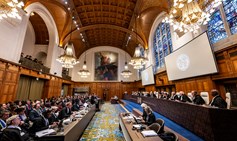
Statement on the ICJ Decision On Provisional Measures
Written By: Prof. Amichai Cohen
Prof. Amichai Cohen, a senior fellow at the Israel Democracy Institute and an expert in international law, made the following comments on the International Court of Justice (ICJ) decision today regarding provisional measures in the case of South Africa v. Israel on the Application of the Genocide Convention.
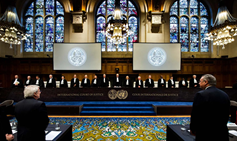
The ICJ Hearings on Israel and the War on Hamas
On January 11th, the court will begin by hearing South Africa’s oral argument, with Israel presenting its counter argument on January 12th.
What does the international law state and what are the possible implications of these proceedings on the ongoing war and Israel’s international standing? We’ve compiled a shortlist of important information you should have.

Explainer: South Africa’s Case Against Israel at the International Court of Justice
Written By: Prof. Amichai Cohen
The ICJ is hearing allegations that Israel has violated the Convention on the Prevention and Punishment of the Crime of Genocide. What is the ICJ? How is the government responding? What are the implications for the war against Hamas and Israel’s international standing?
All the answers in a special IDI explainer.
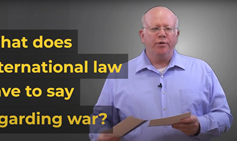
International Law and the War in Gaza
Written By: Prof. Amichai Cohen
IDI's Prof. Amichai Cohen answers a series of questions on international law and its dealings with the laws of war.
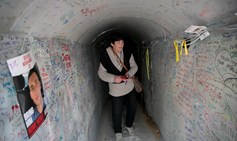
The Hostage Situation in Gaza and the Responsibilities of the International Community
Written By: Prof. Amichai Cohen, Dr. Shelly Aviv Yeini, Prof. Tamar Hostovsky Brandes
This article discusses the responsibilities of the international community with respect to the ongoing war in Gaza, and particularly focusing on responsibilities with regard to the hostage situation.
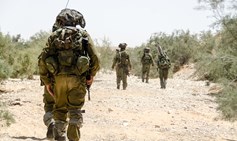
The Judicial Reforms Implications on Israel's Standing in the International Courts
Written By: Prof. Yuval Shany
The Israeli judicial system’s independence and professionalism protect IDF commanders from prosecution in international courts. A close look at the planned judicial overhaul leads to the conclusion that if implemented it would increase the risk to Israeli citizens and make it harder for the country to protect them in the future.
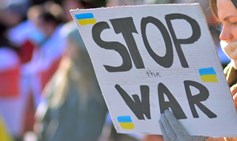
The Legal Battle Between Russia and the World
Written By: Prof. Yuval Shany
The clash between Putin’s Russia and international institutions is a shock to the existing world order.
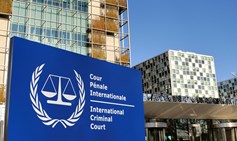
The Ruling by the International Criminal Court: Background, Analysis, and Implications
Written By: Prof. Amichai Cohen
The ICC's ruling to allow the possibility of an investigation into Israeli actions is only the start of a process that is likely to go on for many years. What are the next steps and what are the possible implications for Israel?

On the decision by the ICC in The Hague
IDI Vice President Prof. Yuval Shany on the decision by the International Criminal Court in The Hague (ICC): "It will be a long time before the investigations mature into indictments or arrest warrants."
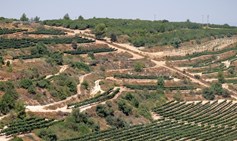
The UN Blacklist – A Devastating Blow, or Prelude to Future Dangers?
Written By: Prof. Yuval Shany
The UN Human Rights Council published a database of Israeli and international companies operating in the West Bank - what are the ramifications and possible outcomes?
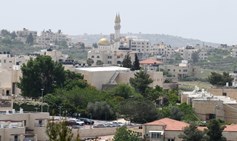
"Deal of the Century" and Annexation - Overview
Written By: Prof. Amichai Cohen
The “Deal of the Century” and Human Rights: An overview of territorial exchanges and the status of the Palestinians in the annexed Areas

Developments in the Investigation Launched at the ICC in The Hague
Written By: Colonel (Res.) Dr. Liron A. Libman
On January 21st, the ICC’s pre-trial court decided to reject the prosecutor’s request to allow her to submit a petition - on technical grounds. So what's next?
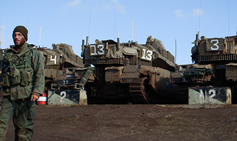
Majority of Israelis Think that Israel is Prepared for War
Written By: Prof. Tamar Hermann, Dr. Or Anabi
A majority of Israelis gave high grades when assessing Israel’s preparedness for war in three areas: the IDF’s combat readiness, the resilience of the population on the home front, and the political echelon’s decision-making ability concerning the objectives and management of the war. At the same time, Israelis do not think highly of the preparedness of the home front regarding protection of civilian facilities.
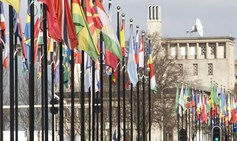
ICC in The Hague - Investigation Against Israel: Explainer
Written By: Prof. Yuval Shany, Colonel (Res.) Dr. Liron A. Libman
Everything you wanted to know about the International Criminal Court in The Hague and its decision to open an investigation against Israel for war crimes
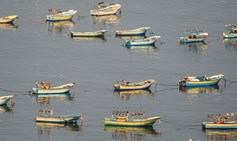
Is Limiting the Gaza Fishing Zone Collective Punishment?
Written By: Colonel (Res.) Dr. Liron A. Libman
Against the backdrop of the armed conflict between Israel and the Hamas - is limiting the space available for fishing near Gaza's shores collective punishment?
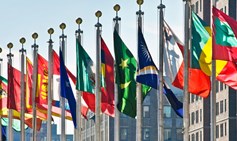
A Show of Global Solidarity – The UN and Human Rights
Written By: Prof. Yuval Shany
The United Nations, with all its many flaws, has an essential role to play in promoting the basic idea that any and all individuals must enjoy human rights.
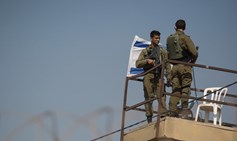
‘Black Friday’ and Other Investigations: Initial Observations
Written By: Prof. Amichai Cohen, Prof. Yuval Shany
Initial observations on Israeli's Military Advocate General's decision to conclude investigation into 'Black Friday'.
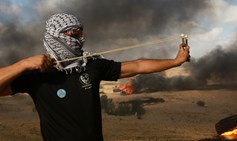
Clarifying the IDF’s Record During the Gaza Riots
Written By: Yohanan Plesner
Israel’s supporters, who have the nation’s best interests at heart, should resist the urge to engage in partisan smear campaigns that attempt to tarnish the reputations of patriots who are on the frontlines of the struggle for Israel’s legitimacy as a Jewish and democratic state. We have enough enemies on our borders.

Hijab, Kippah, Crucifix
Written By: Prof. Yedidia Z. Stern
The ruling by the European Court of Justice (ECJ) that a company is permitted to terminate its worker for wearing religious dress is a sad demonstration of the words of Ecclesiastes: “And moreover I saw under the sun the place of judgment, that wickedness was there; and the place of righteousness, that iniquity was there.”
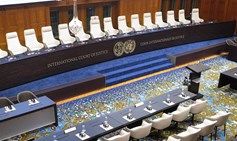
Israel’s Collision Course with the International Community
Written By: Prof. Yuval Shany
The primary significance of Resolution 2334 is that it strengthens other initiatives whose purpose is to punish Israel, its leaders and businesses for their involvement in the settlement enterprise.

Israel’s Agreement with Turkey: Does it Protect IDF Soldiers from Prosecution?
Written By: Prof. Amichai Cohen, Adv. Tal Mimran
Prime Minister Benjamin Netanyahu announced recently that Israel and Turkey had reached an agreement leading to reconciliation between the two countries – and the Knesset approved the deal. Now the question becomes: will the deal have the impact Israeli soldiers are hoping for? Originally published by the Jerusalem Post.
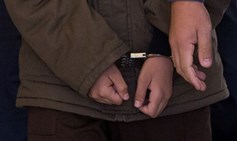
Hebron Shooting Demands IDF Investigation
Written By: Prof. Amichai Cohen
IDI's Prof. Amichai Cohen explains why Israel had to launch a swift and effective investigation into the actions of the solider that shot a neutralized terrorist in Hebron. This article originally appeared on the Times of Israel
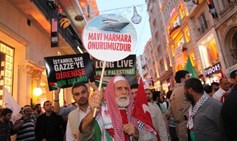
Are Israeli soldiers at risk of prosecution abroad?
Written By: Prof. Amichai Cohen
Prof. Amichai Cohen argues that there is only one good way to prevent prosecution of Israeli soldiers abroad: Israeli authorities must conduct effective, independent, and genuine investigations in cases where there are suspicions of war crimes or other violations. This article was first published by Times of Israel.

Prof. Amichai Cohen Warns about International Intervention in Israeli Investigation of Operation Protective Edge
Upon the release of the findings of the international investigation of Operation Protective Edge: IDI warns that the intervention by international bodies in the investigation of the events of the Operation in Gaza undermines the basis of the international demand to establish investigative mechanisms and weakens the Israeli legal system.
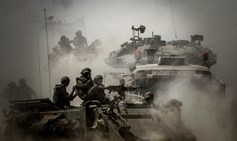
IDI Submission to the UN's International Commission of Inquiry on the 2014 Gaza Conflict
Written By: Prof. Amichai Cohen
Submitted to the UN International Commission of Inquiry on February 11, 2015, this document details the role of lawyers within the Israeli Defense Forces in implementing and enforcing International Humanitarian Law within the IDF.
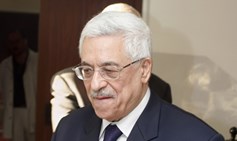
The Palestinian Authority and the International Criminal Court
Written By: Prof. Amichai Cohen, Adv. Tal Mimran
A discussion of the Palestinian Authority's declarations to the International Criminal Court (ICC), the changes that influenced the ICC prosecutor's decision to accept the PA's second declaration, and the conditions that must be fulfilled in order for the ICC to apply its jurisdiction to IDF actions or to the settlement enterprise.
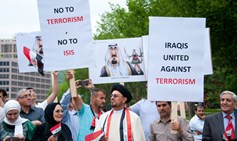
The (Legal) Battle against the Islamic State
Written By: Prof. Amichai Cohen, Adv. Tal Mimran, Prof. Yuval Shany
Three IDI experts on terrorism and democracy discuss the key points of the UN Security Council resolution that condemns the abuse of human rights by the Islamic State, and note two points that they believe are missing from the resolution.
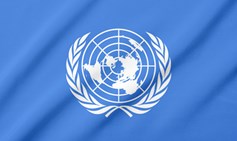
A Betrayal of International Law
Written By: Prof. Mordechai Kremnitzer
In a Jerusalem Post op-ed, Prof. Mordechai Kremnitzer argues that by breaching their responsibility to be impartial, the UN Human Rights Council and its commission for investigating alleged war crimes in Gaza are betraying international law, even if unintentionally.
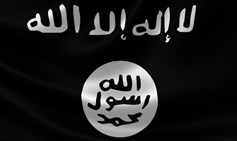
ISIS: Is the Islamic State Really a State?
Written By: Prof. Yuval Shany, Prof. Amichai Cohen, Adv. Tal Mimran
What criteria must the caliphate of the Islamic State meet in order to be considered a State under international law? This article presents an analysis of this question by IDI experts on terrorism and democracy.
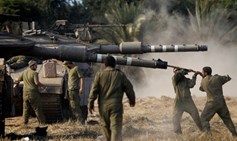
Investigating Allegations of Violations of the Laws of War by the IDF during Operation Protective Edge: The Alternatives Available to Israel
Written By: Prof. Yuval Shany, Prof. Amichai Cohen
How should suspected violations of the international laws of war be investigated? As Operation Protective Edge winds down, Prof. Yuval Shany and Prof. Amichai Cohen discuss the options of an internal investigation by the IDF, an international investigation, and an Israeli commission of inquiry.

Investigating Allegations of Violations of the Laws of War by the IDF during Operation Protective Edge: The Alternatives Available to Israel
Written By: Prof. Yuval Shany, Prof. Amichai Cohen
How should suspected violations of the international laws of war be investigated? As Operation Protective Edge winds down, Prof. Yuval Shany and Prof. Amichai Cohen discuss the options of an internal investigation by the IDF, an international investigation, and an Israeli commission of inquiry.

Why Israel Should Fight with One Hand Tied Behind Its Back
Written By: Yohanan Plesner
In an op-ed in <em>The Jerusalem Post</em>, IDI President Yohanan Plesner stresses that Israel's adherence to international law is not a source of weakness, but rather one of its greatest strengths.
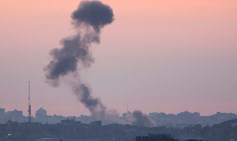
On Operation Protective Edge, Justice, Law, and Victory
Written By: Admiral (Res.) Amichay (Ami) Ayalon
Admiral Ami Ayalon asserts that the winner of today's wars is the side whose story is perceived as just, and argues that without a diplomatic track, Israel cannot win the war, even if the war is justified and Israel adheres to international law in the face of terrorists who violate it.
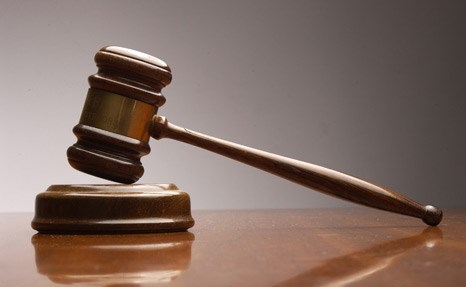
Operation Protective Edge and International Law
Written By: Yohanan Plesner , Prof. Mordechai Kremnitzer, Prof. Amichai Cohen, Adv. Eli Bahar
As Operation Protective Edge enters its second week, IDI experts outline the legal basic concepts involved in asymmetrical warfare and the boundaries of permissible action according to standard interpretations of existing international law.

The Role of a Legal Advisor during Times of Combat
Written By: Adv. Eli Bahar
IDI Researcher Attorney Eli Bahar discusses the central role that members of Israel's system of legal counsel play in formulating the rules of what is permissible during warfare in real time, during the fighting, in order to ensure that Israel's citizens will not be ashamed of themselves after the fighting ceases.
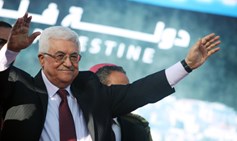
U.N. Recognition of a Palestinian State: A Legal Analysis
Written By: Prof. Amichai Cohen
What is the significance of the UN decision to grant the Palestinian Authority the status of a non-member observer state? IDI Research Fellow Dr. Amichai Cohen explores this question from a legal standpoint.

Half-Measures in the War on Terror: An Israeli Perspective
Written By: Prof. Mordechai Kremnitzer, Prof. Yuval Shany
In an op-ed in The Jerusalem Post, Prof. Mordechai Kremnitzer and Prof. Yuval Shany discuss the need for measures, laws, and institutions designed to combat the war on terror in order to strike a balance between concern for national security and the need to safeguard democratic values such as human rights and the rule of law.
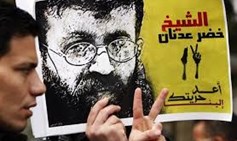
Is Administrative Detention the Right Tool for Fighting Terrorism?
Written By: Elad Gil
On February 21, 2012, just before the High Court of Justice was to hear his petition, Palestinian detainee Khader Adnan agreed to end his life threatening hunger strike after Israeli authorities agreed to release him in April, at the end of four months of administrative detention. Attorney Elad Gil explores basic questions about the use of administrative detention in Israel and highlights lessons learned from the Adnan affair.
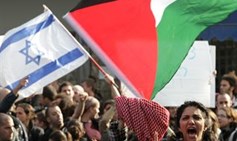
U.N. Recognition of a Palestinian State: A Legal Analysis
Written By: Prof. Amichai Cohen
The Palestinian Authority has announced its intention to declare the establishment of an independent Palestinian State in September 2011, and to ask the U.N. to recognize that state. What is the significance of U.N. recognition? Can the U.N. establish a state? Find out in this legal analysis by IDI Research Fellow Dr. Amichai Cohen.

The Significance of International Recognition of the State of Palestine
Written By: Prof. Yuval Shany
United Nations recognition of Palestine as a state would confront Israel with complex challenges, but would also have some hidden benefits. IDI Senior Fellow Prof. Yuval Shany describes the risks and potential opportunities contained in such international recognition.
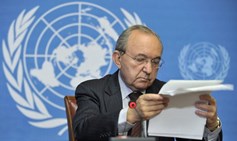
A Suggested Moral Analysis of the Goldstone Report and its Aftermath
Written By: Prof. Mordechai Kremnitzer
Prof. Mordechai Kremnitzer, IDI Vice President of Research, analyzes fundamental principles that bear crucially on the moral aspects of the Goldstone Report, Israel's stance with respect to the report, and contemporary international criminal law in general.

The Goldstone Retraction: Better Late than Never, and an Opportunity to Reconsider
Written By: Prof. Yuval Shany
Judge Richard Goldstone’s retraction of his commission's finding that Israeli actions in Gaza during Operation Cast Lead deliberately targeted civilians righted a historical injustice. But did the actions of the State of Israel contribute to the false impression received by the Goldstone Commission? In this op-ed, IDI Senior Fellow Prof. Yuval Shany explores the question of whether the Israeli government should also search its soul and consider participation in future international commissions of inquiry.
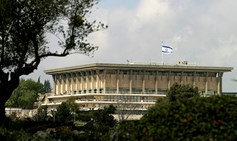
Israeli McCarthyism?
Written By: Prof. Mordechai Kremnitzer, Shiri Krebs
In this op-ed article, IDI Vice President of Research Prof. Mordechai Kremnitzer and IDI researcher Adv. Shiri Krebs question the wisdom of forming a parliamentary commission of inquiry into the funding of Israeli human rights organizations. They warn against a slippery slope to McCarthyism and point out that the establishment of the commission, far from strengthening Israel’s legitimacy, will accelerate efforts to delegitimize Israel and prosecute Israeli officials overseas.

The Counter-Terrorism Memorandum Bill
Written By: Prof. Mordechai Kremnitzer, Prof. Yuval Shany, Terror and Democracy Research Team
An analysis of the proposed comprehensive counter-terrorism bill that was prepared by IDI's Terrorism and Democracy research team and submitted to the Ministry of Justice.

Decade in Review: The Convergence of Israeli and International Law
Written By: Prof. Yuval Shany
IDI Senior Fellow Professor Yuval Shany explains the increasingly critical relationship between international law and the Israeli legal system, in an article that was published at the end of the third millennium as part of a collaboration between IDI and Walla!, a popular Israeli website.

Opinion: Will an Investigative Committee be Set up to Evaluate Goldstone’s Findings?
As calls for an independent Israeli investigation of the events of Operation Cast Lead grow stronger, IDI's Dr. Dana Blander looks at the history of Israel's investigative committees.

Opinion: Goldstone Notwithstanding, IDF Obligated to Investigate Conduct
Written By: Prof. Yuval Shany
This op-ed by IDI Prof. Yuval Shany argues that despite the Goldstone Report’s shortcomings, it strengthens the demand to investigate claims raised against the IDF through an extra-military entity. As he sees it, the main question to address is whether the army's internal investigation of "Operation Cast Lead" meets the requirements of international law.



